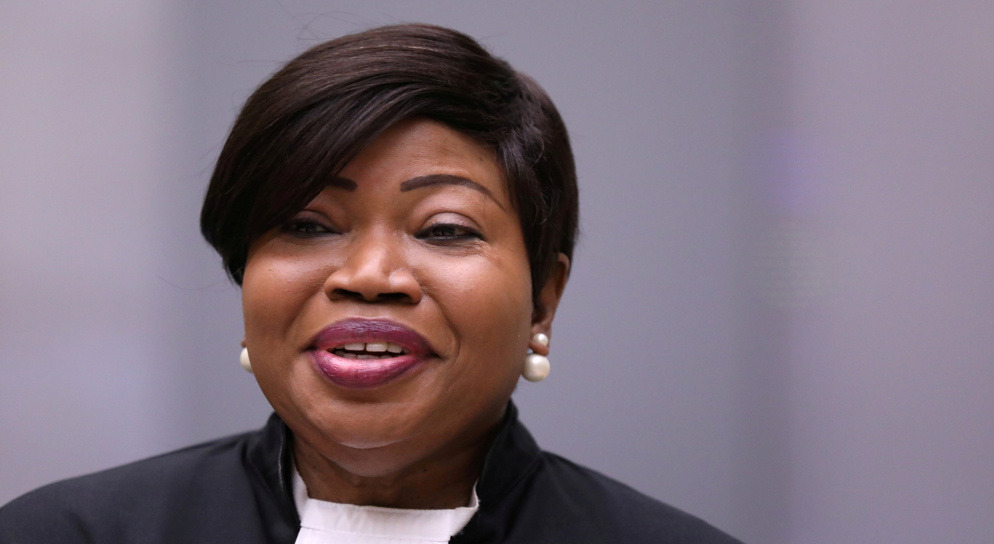
ICC Chief Prosecutor Fatou Bensouda attends a trial in The Hague. (Photo: Reuters)
The Hague, December 14 -- The International Criminal Court's (ICC) outgoing chief prosecutor has denounced as “unacceptable” sanctions imposed by the administration of U.S. President Donald Trump against her, calling on Washington to reverse them.
Fatou Bensouda made the remarks on Monday during her final speech to the court's annual meeting in The Hague, before her term as ICC chief prosecutor ends next year. Bensouda said the court and her prosecution office were “subjected to unprecedented and wholly unacceptable threats, attacks and sanctions this past year,” stressing that Washington's measures represented “a dangerous precedent for a rule-based international system.”
“It is my sincere hope that the U.S. reverses its aggressive policy of antagonism towards the court,” she said, adding> "No one wins from such tactics.”
Dutch Foreign Minister Stef Blok also urged the incoming administration of President-elect Joe Biden to "revoke the sanctions immediately.” "You are attacking something that is valuable to us all," he said.
In September, U.S. Secretary of State Mike Pompeo announced sanctions against Bensouda and another senior official, Phakiso Mochochoko, over investigation into U.S. war crimes in Afghanistan, accusing the Hague-based tribunal of targeting Americans.
Rights groups condemned the measures at the time, with Human Rights Watch international justice director, Richard Dicker, saying it was a "stunning perversion of U.S. sanctions."
Back in June, Trump issued an executive order to block all American property and assets of anyone in the ICC involved in the probe. The U.S. move provoked strong backing for the ICC, with 72 nations at the United Nations pledging "unwavering support," including Australia, Canada, Britain and France.
Bensouda said she was grateful to "all those who have spoken out on the matter... and supported the court and me personally.” In her speech, Bensouda also urged the court’s member states to adequately fund prosecutions as her office comes under increasing pressure to probe alleged atrocities around the globe. Bensouda is stepping down after a nine-year term in office and her successor is scheduled to be elected next week.
In 2006, the ICC's prosecutors opened a preliminary probe into war crimes and crimes against humanity committed in Afghanistan since 2003.
In 2017, Bensouda asked judges to allow a full-blown probe, not only into Taliban and Afghan government personnel but also international forces, U.S. troops and members of the CIA. Bensouda's move angered Washington that revoked in April last year the Gambian-born chief prosecutor's visa as part of broader restrictions on ICC staff probing American or allied personnel.
However, under an agreement between the United Nations and Washington, she was still able to regularly travel to New York to brief the UN Security Council on cases it had referred to the court in The Hague. Former U.S. national security adviser John Bolton also warned in 2018 that the US would arrest ICC judges if the court pursued an Afghan probe.
The U.S. invaded Afghanistan to overthrow a ruling Taliban regime in 2001. American forces have since remained bogged down in the country through the presidencies of George W. Bush, Barack Obama, and Donald Trump. About 2,400 U.S. soldiers have been killed, along with unknown tens of thousands of Afghan troops, Taliban militants and Afghan civilians.

